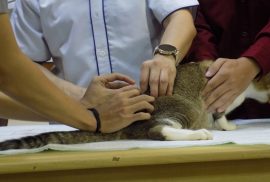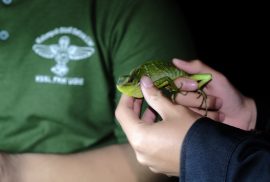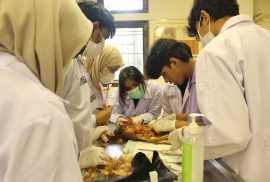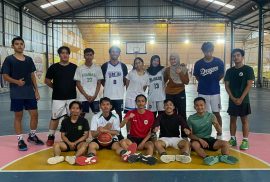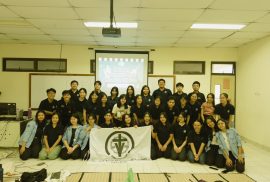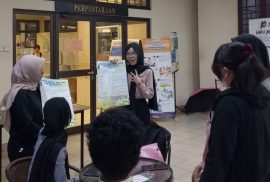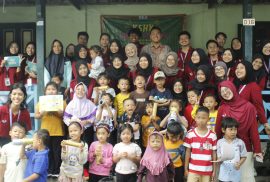Kelompok Diskusi Klinik (KODIK) is an initiative organized by the Kelompok Studi Hewan Kesayangan (KSHK) of the Faculty of Veterinary Medicine, Universitas Gadjah Mada. This activity aims to enhance students’ skills in handling various clinical cases, continuously discuss fundamental clinical knowledge ...
SDG 3: Good Health and Well-being
The KSSL Weekend Getaway is an annual event designed to strengthen bonds among KSSL members while increasing awareness and knowledge about wildlife in its natural habitat. This year’s event was held on May 24–25, 2025, at Bella Plaza Lodge
Aware of Issue is one of the annual flagship programs initiated by the Department of Studies, Action, and Propaganda of BEM FKH UGM. This program serves as a platform for the Veterinary Medicine Student Family of UGM (KM FKH UGM)
Belajar Bersama Kastrat (BEBEK) 2 raised the theme "Chicken Necropsy," which was held by PC IMAKAHI UGM under the Department of Strategic Studies on June 1, 2025, at the Macroanatomy Laboratory of the Department of Anatomy, Faculty of Medicine and Health Sciences (FKH) UGM ...
On Saturday, May 17, 2025 at the Faculty of Veterinary Medicine UGM, the Pet Animal Advanced Study (PAAS) was carried out by Departemen Pendidikan of Kelompok Studi Hewan Kesayangan (KSHK) of the Faculty of Veterinary Medicine, Universitas Gadjah Mada.
Fun With Ruminant 2025, a work program from the Ruminant Division of the Productive Livestock Study Association (Himpunan Studi Ternak Produktif) Faculty of Veterinary Medicine Universitas Gadjah Mada, was held on Saturday, May 24th, 2025.
From May 9-15May 2025, the Upskill program was implemented, initiated by the Semi-Autonomous Agency (BSO) under the auspices of OSVET. This activity includes regular training for basketball, futsal, dance, band, softball, badminton, volleyball, and table tennis.
To start the management of PMK 2025 and unite the vision and mission in service, on March 15, 2025, the Daily Executive Board and the Advisory Board of PMK FKH UGM held a board briefing ...
World Veterinary Day is a series of activities organized by the Student Family of the Faculty of Veterinary Medicine, Universitas Gadjah Mada to commemorate World Veterinary Day.
KSHK Go To School, themed “Pet Day at School,” is an initiative organized by the Community Engagement Department of the Companion Animal Study Group (KSHK) at the Faculty of Veterinary Medicine, Universitas Gadjah Mada.

